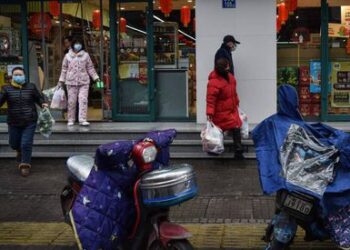
The Spanish government has activated nearly a thousand public employees in order to deal with the extra work that is expected should the United Kingdom crash out of the European Union without a deal on October 31, a process commonly referred to as a “no-deal Brexit.”
Spain is ready for any scenario, including a hard Brexit
Acting Prime Minister Pedro Sánchez
The acting prime minister, Pedro Sánchez of the Socialist Party (PSOE), said on Wednesday in Congress that 875 public positions have been put in place with the aim of strengthening the areas that are most exposed to an abrupt divorce between the EU and the UK. “In most cases, these employees were already in their positions,” explained Sánchez, who used much of his speech this morning in Spain’s lower house of parliament to explain the preparations the country has been making should a no-deal Brexit come to pass.
These additional roles, which the government has been filling over recent months, are mostly focused on customs services, trade in goods, border controls and tasks associated with the “transition to the new regime” that British citizens in Spain will have to deal with after a hard Brexit, such as arranging the new identity documents that they might need.
The new hires were authorized by the Cabinet on February 8 ahead of the original Brexit date of March 30, but have now been rescheduled to coincide with the new exit date of October 31.

As many as 400,000 Britons in Spain may apply for the new immigration status that British citizens will need once their country is no longer subject to the free movement and residency that the EU offers. This figure is above the official statistic of 330,000 Britons who are officially registered in Spain, according to Interior Ministry data, given that there are estimates of a number of UK citizens who have not yet registered as official residents as their status as EU citizens afforded them rights without the need for paperwork.
Sánchez also referred to the extraordinary meeting of ministers that he presided over last week in order to revise all of the measures that have been put in place so far and identify pending tasks. “Spain is ready for any scenario, including a hard Brexit,” the prime minister told Congress, saying that he wanted to convey a “message of calm” to citizens and the companies that may be affected.
The British Overseas Territory of Gibraltar – located in the south of Spain, and which voted overwhelmingly to remain in the 2016 Brexit referendum – is likely to be a key element for Spain when the UK leaves the EU, given that the border there will constitute a frontier between the EU and what will be a third country. Conscious of the importance of “The Rock,” as Gibraltar is commonly known, Sánchez extolled the measures secured for the British Overseas Territory in the negotiations between Brussels and London for an orderly withdrawal. Sánchez presented as a strength something that at the time of the talks was seen as a weakness: that the veto that Spain has over any benefit that Gibraltar may be granted as part of Brexit is contained within a separate document, rather than forming part of the so-called withdrawal agreement. This means that Spain’s right to give its approval or otherwise to including Gibraltar within any ordered withdrawal framework is valid even in the case of a no-deal Brexit – although the UK is highly likely to contest this point.
As many as 400,000 Britons in Spain may apply for the new immigration status
Sánchez also sought to draw parallels between the situation in the UK, which he said was mired in a “serious constitutional crisis,” and the polarization in Spain over the issue of Catalan independence. “Not even democratic Britain is safe from trivialization via polarization and splits,” he told the deputies in Congress. “We will take note and act accordingly. We need to be the best version of ourselves.”
Spain is on course to hold its fourth general election in as many years in November, given that talks between Sánchez’s PSOE and left-wing Unidas Podemos have failed so far to come up with a governing deal. The PSOE won most votes at the April 28 polls but fell short of a majority and will need the support of Unidas Podemos as well as other smaller parties if it is to form a government.
English version by Simon Hunter.
Get real time update about this post categories directly on your device, subscribe now.





















